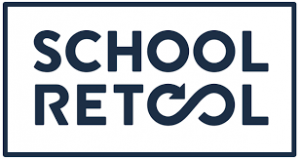“Hacking” School Culture
 Like most teachers in Michigan, last week I spent two days proctoring the state’s SAT and ACT Work Keys tests. I collected the box of tests, read from the script, made sure there were no errant marks, and was generally absolutely bored.
Like most teachers in Michigan, last week I spent two days proctoring the state’s SAT and ACT Work Keys tests. I collected the box of tests, read from the script, made sure there were no errant marks, and was generally absolutely bored.
The students, on the other hand, were completely stressed out by the experience, and walked away from the testing center looking like Walking Dead extras.
After spending this first day in SAT-land, I attended a workshop hosted by School Retool. School Retool is a professional development fellowship the helps school leaders redesign their school culture, using what they call “hacks.”
A colleague and I drove to the Wayne State University campus to meet a group of educators from across the state—there were two teachers from Grand Rapids—who had fled the confines of standardized testing to talk about how to change school culture.
The folks at School Retool say it’s about “hacks.” Hacks, according to them, are “small scrappy experiments” that help redesign school culture. Instead of being intimidated by the “big picture” and the things beyond my power, like standardized testing, hacking asks me to look at the levers I have in front of me, the small, scrappy changes I can make.
Don’t like the culture of my classroom? Then do something, a small thing. Pull a lever!
Changing Culture with Small Steps
Like most of the teachers at the workshop, I’ve been hacking in my classroom for some time, but I didn’t have a name for it.
 My earliest “hacks” came when I moved the focus away from the teacher, me, as the primary audience for students’ writing, and went looking for an authentic audience. I ditched the five-paragraph essay. I replaced tests with Harkness-style discussions, and let students read whatever they wanted. I’ve tinkered with curriculum and “required reading,” while looking for more effective ways to help my students become better writers.
My earliest “hacks” came when I moved the focus away from the teacher, me, as the primary audience for students’ writing, and went looking for an authentic audience. I ditched the five-paragraph essay. I replaced tests with Harkness-style discussions, and let students read whatever they wanted. I’ve tinkered with curriculum and “required reading,” while looking for more effective ways to help my students become better writers.
These are all small experiments, scrappy ones to be sure. But they’ve changed and continue to change the culture of my classroom and my department.
My takeaway from the event was a challenge I’ve been wrestling with for awhile now. What levers do I have that I can push to affect my school’s culture?
I walked into the workshop feeling, as I usually do during Test Week, exhausted and small. But listening to what other teachers were doing, or thinking about doing, started to work its magic on me. I felt my own culture and attitude changing.
Isn’t this what professional development is supposed to feel like? What am I going to hack next? What are we all?
 Rick Kreinbring teaches English at Avondale High School in Auburn Hills, Michigan. His current assignments include teaching AP Language and Composition and AP Literature and Composition. He is a member of a statewide research project through the Michigan Teachers as Researchers Collaborative partnered with the MSU Writing in Digital Environments Program, which concentrates on improving student writing and peer feedback. Rick has presented at the National Advanced Placement Convention and the National Council of Teachers of English Conference. He is in his twenty-third year of teaching and makes his home in Huntington Woods.
Rick Kreinbring teaches English at Avondale High School in Auburn Hills, Michigan. His current assignments include teaching AP Language and Composition and AP Literature and Composition. He is a member of a statewide research project through the Michigan Teachers as Researchers Collaborative partnered with the MSU Writing in Digital Environments Program, which concentrates on improving student writing and peer feedback. Rick has presented at the National Advanced Placement Convention and the National Council of Teachers of English Conference. He is in his twenty-third year of teaching and makes his home in Huntington Woods.
